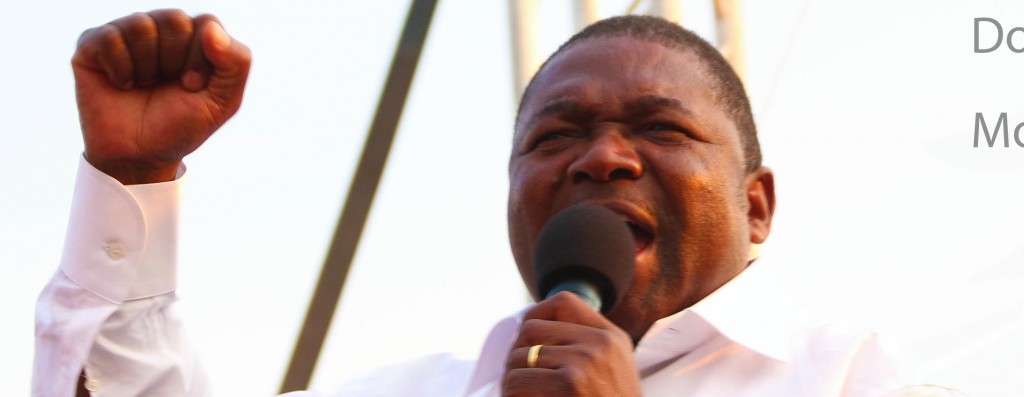Gorongosa (Mozambique) (AIM) – Mozambican President Filipe Nyusi and the leader of the former rebel movement Renamo, Ossufo Momade, on Thursday signed an agreement on a definitive cessation of hostilities between government and Renamo forces.
Source: Nyusi and Momade sign agreement to end hostilities – The Zimbabwean
Mozambican President Filipe Nyusi
The ceremony took place at Chitengo, inside Mozambique’s flagship conservation area, the Gorongosa National Park, in the central province of Sofala.
After signing the document, and an effusive embrace with Momade, Nyusi said the march towards effective peace is now irreversible, and that “uncertainty has given way to hope”.
“Henceforth, the hostilities between members of the same family pass into history”, declared Nyusi. “We are Mozambicans who are choosing to bury armed confrontation definitively, because we know how destructive are the horrors of war for present and future generations”.
He noted that the site of the signing ceremony, Gorongosa district, had been “the epicentre of the armed confrontation between the government and Renamo”, and the agreement “is the unequivocal demonstration of our commitment to an effective and lasting peace”.
“As from today”, he added, “a new era is opening in the history of the country, in which no Mozambican should use violence as the means to solve differences”.
True national reconciliation now begins, said the President, and was a necessary condition for the consolidation of effective peace and for greater economic and social development. He was hopeful that, with the support of the international community, resources will be mobilised in order to implement “with due speed and effectiveness, the reintegration of our brothers who were in the forces of Renamo”.
Some will be recruited into the defence and security forces, while other will return to civilian life, and may need assistance in finding work.
Shortly before the agreement was signed, Nyusi met with the National Defence and Security Council (CNDS), a body that advises the President.
“The CNDS says that today a child has been born”, Nyusi told the crowd. “This agreement is regarded as the umbilical cord which should be buried so that the Mozambican people no longer experience war”.
“Military violence held back the development of Mozambique”, he said. “But imbued with the interest of reconciling Mozambicans, we submitted an amnesty bill, which has now been passed by parliament”.
For his part, Momade pledged that Renamo will “comply unreservedly with all the provisions of the agreement”.
He asked the government to do likewise – and particularly to respect the clause whereby it must “refrain from taking up threatening positions or encircling bases of Renamo that are known to the Technical Group on Disarmament, Demobilisation and Reintegration, while the process of dismantling them is under way”.
With the signature of the agreement, he said, “we want to bury the culture of violence, the lack of acceptance of others, and the denial of fundamental freedoms to Mozambicans”.
Describing Nyusi as his “brother”, Momade praised the President for “breaking with the forces who always opposed dialogue” as a means of solving differences. “We hope that he (Nyusi) will be the guardian of the golden page we are opening today”.
He made the standard Renamo claim that military hostilities had broken out again in 2015 because of “the proclamation and validation of election results that were not transparent, just or credible”.
In fact, the results of the 2014 presidential elections were generally accepted as free and transparent by domestic and foreign election observer groups. The parallel count of the results, done by observers, was in line with the official results announced by the National Elections Commission (CNE). The 2014 elections were held on the basis of amended electoral legislation which Momade’s predecessor, Afonso Dhlakama, publicly declared would be an effective barrier against fraud.
This is the third peace agreement between the government and Renamo, preceded by the third amnesty law. The previous agreements were the General Peace Accord signed on 4 October 1992 by the then president, Joaquim Chissano, and Dhlakama, and an agreement on cessation of hostilities signed on 5 September 2014 by Dhlakama and Chissano’s successor, Armando Guebuza.

COMMENTS